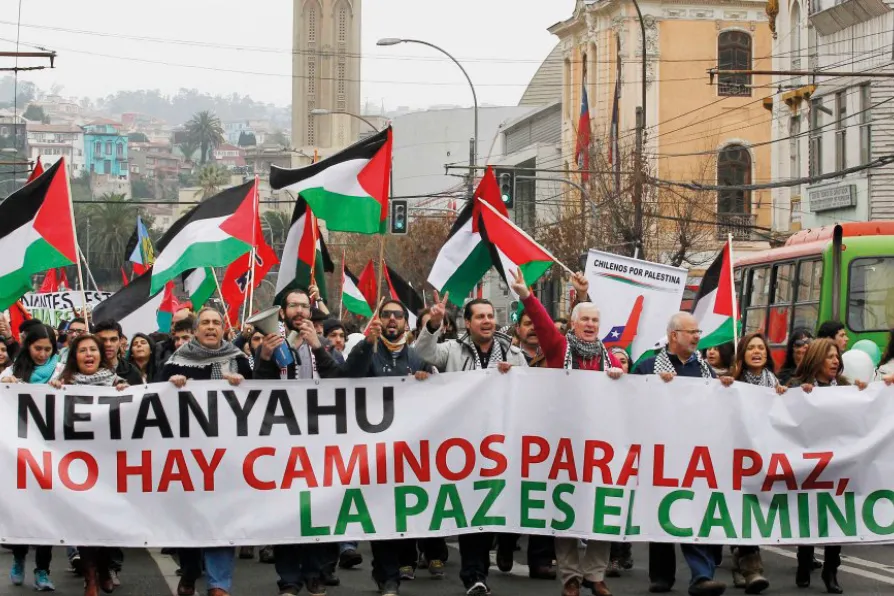Following a fratricidal period for the left with Morales and Arce at loggerheads, right-wing, anti-MAS candidates obtained over 85 per cent of the votes cast in the latest general election, writes FRANCISCO DOMINGUEZ

 A pro-Palestine march in Chile
A pro-Palestine march in Chile
I WAS only introduced to the term “Chilestinians” last February at a conference in Istanbul, during a presentation by the director of the Palestinian Federation of Chile, Anuar Majluf.
When Majluf referred to the well-rooted Palestinian community in Chile, who number between 450,000 and half a million, using that unfamiliar and peculiar phrase, I smiled. Others did, too.
It is quite rare that a conference on Palestine, anywhere, would include such an upbeat atmosphere as that introduced by the Chilean-Palestinian leader, as the current discourse on Palestine is one that is saturated with a deepening sense of political failure, disunity and betrayal.

With foreign media banned from Gaza, Palestinians themselves have reversed most of zionism’s century-long propaganda gains in just two years — this is why Israel has killed 270 journalists since October 2023, explains RAMZY BAROUD

Gaza’s collective sumud has proven more powerful than one of the world’s best-equipped militaries, but the change in international attitudes isn’t happening fast enough to save a starving population from Western-backed genocide, argues RAMZY BAROUD

RAMZY BAROUD asks why it has taken so long for even left-wing voices in the West to call out what Israel is doing

RAMZY BAROUD explains why the world can no longer ignore Palestine














